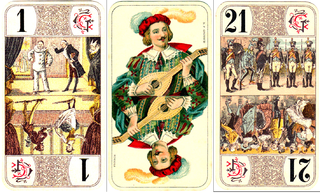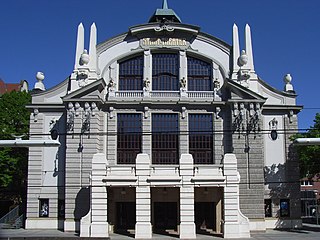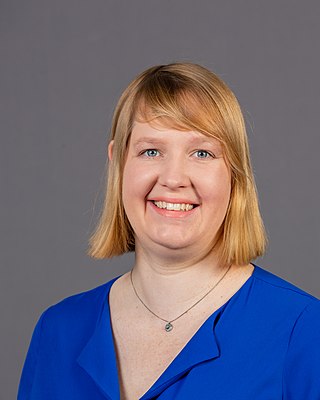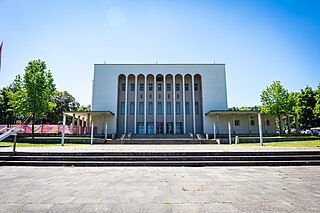Related Research Articles

Tarot is a pack of playing cards, used from at least the mid-15th century in various parts of Europe to play card games such as Tarocchini. From their Italian roots, tarot-playing cards spread to most of Europe, evolving into a family of games that includes German Grosstarok and modern games such as French Tarot and Austrian Königrufen. In the late 18th century French occultists made elaborate, but unsubstantiated, claims about their history and meaning, leading to the emergence of custom decks for use in divination via tarot card reading and cartomancy. Thus, there are two distinct types of tarot packs in circulation: those used for card games and those used for divination. However, some older patterns, such as the Tarot de Marseille, originally intended for playing card games, are occasionally used for cartomancy.

Bielefeld is a city in the Ostwestfalen-Lippe Region in the north-east of North Rhine-Westphalia, Germany. With a population of 341,755, it is also the most populous city in the administrative region of Detmold and the 18th largest city in Germany.
For over a century until 1996, F.X. Schmid was an important German manufacturer of playing cards, board games and puzzles. It was considered one of the major European manufacturers. In 1995, its turnover was 67 million DM and there were around 250 employees.

Bielefelder Alm is a football stadium in Bielefeld, Germany which is home of the football club DSC Arminia Bielefeld and mostly used for the club's matches. Formerly named Stadion Alm, it is currently known as SchücoArena due to a sponsorship deal with the Bielefeld-based window, door, and façade manufacturers. The stadium currently has a capacity of 27,332 following the most recent major renovations completed in 2008. Alm means mountain pasture, or simply pasture, in German. Various legends exist relating to the initial conditions of the stadium and pitch which gave the Alm its name.

The Bourgeois Tarot deck is a mid-19th century pattern of tarot cards of German origin that is used for playing card games in western Europe and Canada. It is not designed for divinatory purposes. This deck is most commonly found in France, Belgian Wallonia, Swiss Romandy and Canadian Québec for playing French Tarot; in southwest Germany for playing Cego and Dreierles; and in Denmark for Danish Tarok.

The 2010 FIFA U-20 Women's World Cup was the 5th edition of the tournament. It was held in Germany, who also hosted the 2011 FIFA Women's World Cup a year later, from 13 July to 1 August 2010. Sixteen teams, comprising representatives from all six confederations, were taking part in the final competition, in which Germany had a guaranteed place as the host nation.

The Bielefeld Opera is the venue of Städtische Bühnen Bielefeld in Bielefeld, Germany. It is a Dreisparten Haus, offering plays, music, and ballet. The main performance venue is the Stadttheater am Niederwall, built in 1904 and extensively renovated from 2004 to 2006. It is the largest theater in East Westphalia, offering 500 performances annually. It is under the direction of Michael Heicks; its resident orchestra is the 72-member Bielefeld Philharmonic Orchestra that also performs symphonic concerts at the Rudolf-Oetker-Halle.

Animal Tarot is a genre of tarot decks used for playing card games that were most commonly found in northern Europe, from Belgium to Russia, only one of which has survived: the Adler Cego pattern in south Germany. A theme of animals, real and/or fantastic, replaces the traditional trump scenes found in the Italian-suited tarot packs such as the Tarot of Besançon. The Sküs plays a musical instrument while the Pagat is represented by Hans Wurst, a carnival stock character who carries his sausage, drink, slap stick, or hat. They constitute the first generation of French-suited tarot patterns. Prior to their introduction, tarot card games had been confined to Italy, France, and Switzerland. During the 17th century, the game's popularity in these three countries declined and was forgotten in many regions. The rapid expansion of the game into the Holy Roman Empire and Scandinavia after the appearance of animal tarots may not be a coincidence. In the 19th century, most animal tarots were replaced with tarots that have genre scenes, veduta, opera, architecture, or ethnological motifs on the trumps such as the Industrie und Glück of Austria-Hungary.

The Swiss Tarot deck is a 78-card deck used for the tarot card games Troccas and Troggu. It is also sometimes called the JJ Tarot due to the replacement of the usual second and fifth trumps with cards depicting Juno and Jupiter, or as 1JJ Tarot in reference to the catalog number of a common release of the deck by A.G. Müller.

Parts of Swiss German speaking Switzerland have their own deck of playing cards referred to as Swiss-suited playing cards or Swiss-suited cards. They are mostly used for Jass, the "national card game" of Switzerland. The deck is related to the various German playing cards. Within Switzerland, these decks are called German or Swiss German cards.

German-suited playing cards are a very common style of traditional playing card used in many parts of Central Europe characterised by 32- or 36-card packs with the suits of Acorns, Leaves, Hearts and Bells. The German suit system is one of the oldest, becoming standard around 1450 and, a few decades later, influencing the design of the now international French suit system of Clubs, Spades, Hearts and Diamonds. Today German-suited playing cards are common in south and east Germany, Austria, German-speaking Switzerland, Liechtenstein, north Italy, Hungary, Czech Republic, Slovakia, Slovenia, Croatia, Bosnia, northern Serbia, southern Poland and central and western Romania.

French-suited playing cards or French-suited cards are cards that use the French suits of trèfles, carreaux, cœurs, and piques. Each suit contains three or four face/court cards. In a standard 52-card deck these are the valet, the dame, and the roi (king). In addition, in Tarot packs, there is a cavalier (cavalier) ranking between the queen and the jack. Aside from these aspects, decks can include a wide variety of regional and national patterns, which often have different deck sizes. In comparison to Spanish, Italian, German, and Swiss playing cards, French cards are the most widespread due to the geopolitical, commercial, and cultural influence of France, the United Kingdom, and the United States in the 19th and 20th centuries. Other reasons for their popularity were the simplicity of the suit insignia, which simplifies mass production, and the popularity of whist and contract bridge. The English pattern of French-suited cards is so widespread that it is also known as the International or Anglo-American pattern.

The Bielefelder Kennhuhn or Bielefelder is a German breed of domestic chicken. It was developed in the area of Bielefeld in the 1970s by Gerd Roth, who cross-bred birds of Malines and Welsumer stock with American Barred Rocks to create the breed. Like other breeds with Barred Rock parentage, it is auto-sexing – chicks of different sexes can be distinguished by their colour. There is a bantam version, the Bielefelder Zwerg-Kennhuhn.

ASS Altenburger is since 2003 the trademark of the German playing card manufacturer Spielkartenfabrik Altenburg, based in the town of Altenburg. The firm is owned by Cartamundi, of Turnhout, Belgium. ASS claims to be the market leader in Germany for playing cards. Every year almost 40 million packs of cards of many different types are manufactured in Altenburg.

Wiebke Esdar is a German psychologist and politician of the Social Democratic Party (SPD). She has been a member of the Bundestag since the 2017 election, when she won the constituency of Bielefeld – Gütersloh II with 33.2% of the votes.
Friedrich Oberschelp (1895–1986) was a German music teacher and choral conductor. He founded the Bielefelder Kinderchor, a mixed children's choir in Bielefeld, in 1932 and led it until 1984, making recordings and touring internationally. He also founded Die Leineweber, a mixed choir formed by former members of the children's choir, in 1946, with a focus on German Volkslied. The children's choir became famous for its Christmas concerts and was internationally recognised.

Nürnberger-Spielkarten-Verlag (NSV) is a German playing card manufacturer and board game publisher based in Nuremberg. It was founded in 1989 after outsourcing from the publishing house of F.X. Schmid and builds on the "Heinrich Schwarz Playing Card Factory, Nuremberg" founded in 1948. The company produces playing cards and dice games s and, especially in recent years, increasingly proprietary games from various game authors.

The German Playing Card Museum in Leinfelden-Echterdingen is a branch of the Württemberg State Museum and houses one of the largest public playing cards collections in Europe. It is open to all ludologists and those with private interests. Playing cards are systematically collected, archived and researched. The collection includes around 15,000 decks with over 500,000 individual cards, a games library with an archive, a graphics collection, as well as arts and crafts objects, card presses, glasses, gaming tables, etc. One rarity is its Asian-Indian collection. It is considered the most comprehensive museum of its type in the world. The museum is a member of the International Playing Card Society.

The Rudolf-Oetker-Halle (ROH) is the concert hall of Bielefeld, North Rhine-Westphalia, Germany. It was built from 1928 to 1930 after designs by Düsseldorf architects Tietmann & Haake, opened on 31 October 1930. The listed monument is mostly in the original state and has excellent acoustics. The hall has been managed by the Theater Bielefeld from 2018. It is the home of the Bielefelder Philharmoniker.

The Goldbeck GmbH is a family-run construction company based in Bielefeld, North Rhine-Westphalia. Its main area of operation lies in civil engineering for the commercial and public sectors. According to 2022 figures, the company has around 100 locations, including 13 of its own plants.
References
- ↑ Bielefelder Spielkarten at British Museum. Retrieved 26 February 2021.
- ↑ Allgemeine Infos zum Bielefelder Verlag at quartettportal.de. Retrieved 26 February 2021.
- ↑ Comtesse at World of Playing Cards. The logo is clearly depicted at the head of the article. Retrieved 26 February 2021.